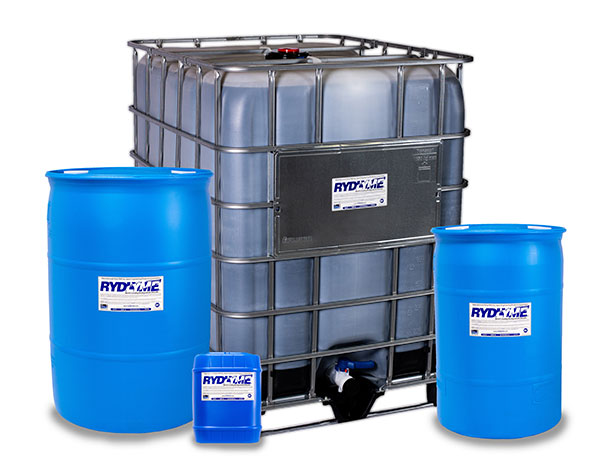Call for more information!
630-820-8888
How Much Descaler do You Need?
We’ll preface this article by saying that all situations and needs are different when it comes to descaling, degreasing, and other types of industrial cleaning. That said, there are many factors that will always come into play when it comes to a ballpark amount of how much product you need for a specific cleaning job.
Estimating the amount of chemical needed to descale an industrial system involves considering various factors related to the specific system, the severity of scaling, and the chosen descaling agent.
Below is a general guide on how to estimate the amount of chemical required for a particular descaling job.
System Size & Volume
Determine the size and volume of the industrial system you are descaling. This includes information on the capacity of pipes, tanks, heat exchangers, or any other components that may be affected by scaling.
Severity of Scale
Assess the severity of scaling in the system. The extent of scaling will influence the concentration and amount of descaling chemical required. Heavily scaled systems may require higher concentrations or larger quantities of descaling agents.
Type of Scaling
Identify the type of scaling in the system, such as calcium, magnesium, or other mineral deposits. Different descaling agents are effective against specific types of scale, so the choice of chemical will depend on the composition of the scaling.
Manufacturer Concentration Recommendations
Consult the manufacturer’s recommendations or technical data sheets for the chosen descaling chemical. Manufacturers typically provide guidelines on the recommended concentration of the chemical for various applications. These guidelines help determine the proper dilution ratio.
Water Hardness
Consider the hardness of the water in the system. Water hardness can affect the efficacy of descaling agents, and adjustments may be needed based on the mineral content of the water.
Temperature & Pressure
Take into account the operating temperature and pressure of the industrial system. Some descaling agents may have specific temperature or pressure requirements for optimal performance.
Application Details
Consider the method of application, whether it involves circulating the descaling solution, immersion, or other techniques. The application method can influence the contact time between the descaling chemical and the scaling, affecting the overall effectiveness.
Safety
Factor in safety considerations, ensuring that the chosen concentration of descaling chemical is within safe and permissible limits. Follow safety guidelines provided by the chemical manufacturer.
Testing & Monitoring
Conduct pilot tests or small-scale trials to assess the effectiveness of the descaling chemical at different concentrations. Monitor the results closely and adjust the concentration if needed before scaling up to the full system.
Regulatory Compliance
Ensure that the use of the descaling chemical complies with local environmental regulations and safety standards. Some jurisdictions may have specific guidelines on the use and disposal of industrial chemicals.
Manufacturer And/Or Professional Advice
Seek advice from chemical suppliers or technical experts with experience in descaling industrial systems. They can provide valuable insights into the specific requirements of your system and help tailor the descaling process accordingly.
It’s important to note that the estimation process may vary based on the specific conditions of each industrial system. Consulting with professionals, conducting thorough assessments, and adhering to safety and environmental guidelines are critical steps in ensuring an effective and safe descaling process.
The best way to get a solid estimate of how much chemical you will need to finish the job is by reaching out to the manufacturer. Manufacturers have strict guidelines on chemicals and the amount needed for a specific job if you give them the information about your system.
RYDLYME FEATURES:
- Biodegradable
- Dissolves 2.2 lbs of scale per gallon of RYDLYME
- NSF/ANSI 60 certified
- Non-corrosive and safe for personnel


